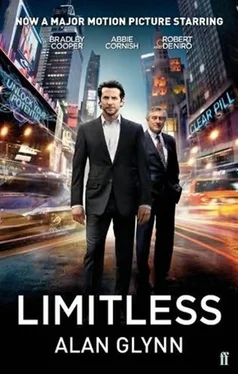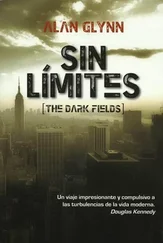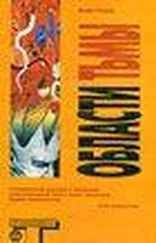After a while, a few friends of Dean’s arrived and we all had dinner together. There was a middle-aged couple I’d met once before, called Paul and Ruby Baxter, who were both architects, and a young Canadian actress called Susan. Over dinner, we discussed lots of subjects, and it quickly became apparent to everyone present, myself included, that elaborate, scarily articulate views on just about everything were going to be emanating from my end of the table. I got into a protracted argument with Paul about the relative merits of Bruckner and Mahler. I gave them my ’60s spiel, including a brief aside on Raymond Loewy and streamlining. I followed this with further ruminations on Italian history and the nature of time, which in turn developed into a lengthy expostulation on the inadequacies of Western political theory in the face of rapid global change. Once or twice – and it was as though from outside my body, as though from above – I became acutely aware of myself sitting at the table, talking, and for those fleeting moments, as I went on hacking a path through the knotty thickets of syntax and Latinate vocabulary, I had no real sense of what I was saying, no real idea if I was being coherent. Nevertheless, it all seemed to go down quite well – whatever it was – and despite being a bit worried that I was coming on too strong, I detected in Paul the same thing I’d detected earlier in Artie Meltzer, a kind of agitated need to keep talking to me, as though I were buoying him up somehow, empowering him, supplying him with regenerative energy waves. Neither was it my imagination, a bit later, when Susan started flirting with me, casually brushing her arm against mine, holding my gaze. I was able to side-track her by returning to the Bruckner-Mahler debate with Paul – though don’t ask me why, because I was certainly getting bored with that subject, and she was strikingly beautiful.
After dinner, in any case, we went to a string of nightclubs – first to the Duma, then to Virgil’s, then to the Moon and later to Hexagon. I don’t remember exactly when, but I took another dose of MDT in a bathroom somewhere. What I do remember is that harsh, neon-bright toilety atmosphere, people reflected in mirrors all around me, some locked into teeth-grinding, out-of-focus conversations, others slumped up against white tiles, staring at themselves – drunk, wired, bewildered – as though they’d accidentally fallen out of their own lives.
I remember feeling electric.
*
An increasingly bewildered Dean went home some time after two, as did Susan. Other friends of Paul and Ruby’s arrived, followed a while later by friends of theirs . Then Paul and Ruby dropped out. Another hour or two passed and I found myself in a huge apartment on the Upper West Side with a bunch of people I’d never met before. They were all sitting around a glass table doing lines of coke – but still, I was the one out-talking them. Standing up and walking around at a certain point, I caught sight of myself in a large ornate mirror that was hanging above a fake marble fireplace, and realized that I was the centre of attention, and that whatever I was talking about – and God knows it could have been anything – everyone in the room, without exception, was listening to me. At around five o’clock in the morning, or five-thirty, or six – I don’t remember – I went with a couple of guys to a diner on Amsterdam for breakfast. One of them, Kevin Doyle, was an investment banker with Van Loon & Associates and seemed to be saying that he could throw some information my way, good information, and that he could help me set up a portfolio. He kept insisting that we meet during the week, in his office, for lunch, even for coffee, any day that suited.
The other guy just sat there the whole time staring at me.
Eventually – because sooner or later everyone had to go to bed – I found myself alone again. I spent the day criss-crossing the city, mostly on foot, looking at stuff I’d never really paid that much attention to before, like those mammoth apartment buildings on Central Park West, with their roof-towers and Gothic cornices. I wandered down to Times Square, over to Gramercy Park and Murray Hill. I went back in the direction of Chelsea and then down to the Financial District and Battery Park. I did the Staten Island Ferry, standing out on the deck to let the fresh, invigorating wind cut right through me. I caught a subway back uptown, and went to museums and galleries, places I hadn’t been to in years. I went to a recital of chamber music at Lincoln Center, ate brunch at Julian’s, read the New York Times in Central Park and caught two Preston Sturges movies in a revival theatre in the West Village.
Later on, I hooked up with a few people back in Zola’s and got home to bed, finally, some time in the early hours of Monday morning.
AFTER THAT, THE FOLLOWING three or four weeks fused into one another, into one long stretch of… elasto -time. I was permanently… what? Up? High? Stoned? Out of it? Tripping? Buzzed? Wired? Chillin’? None of these terms is appropriate, or adequate, to describe the experience of being on MDT. But – regardless of what term you use – I was a certified MDT user now, taking one, sometimes two, doses of the stuff a day, and just about managing to snatch the odd hour of sleep here and there. I had a sense that I – or, rather, my life – was expanding exponentially and that before long the various spaces I occupied, physical and otherwise, were not going to be sufficient to contain me, and would consequently be put under a great deal of strain, maybe even to breaking point.
I lost weight. I also lost track, so I don’t know over what period of time I lost the weight exactly, but it must have been about eight or ten days. My face thinned out a little, and I felt lighter, and trimmer. It’s not that I wasn’t eating, I was – but I was eating mostly salads and fruit. I cut out cheese and bread and meat and potato-chips and chocolate. I didn’t drink any beer or sodas, but I did drink lots of water.
I was active.
I got my hair cut.
And bought new clothes. Because it was as much as I could bear to go on living in my apartment on Tenth Street, with its musty smells and creaky floorboards, but I certainly didn’t have to put up with a wardrobe that made me feel like an extension of the apartment. So I took out two thousand dollars from the envelope in the closet and wandered over to SoHo. I checked out a few stores, and then took a cab up to Fifth Avenue in the Fifties. In the space of about an hour, I bought a charcoal wool suit, a plain cotton shirt and an Armani silk tie. Then I got a pair of tan leather shoes at A. Testoni. I also got some casual stuff at Barney’s. It was more money than I’d ever spent on clothes in my entire life, but it was worth it, because having new, expensive things to wear made me feel relaxed and confident – and also, it has to be said, like someone else. In fact, to get the measure of myself in the new suit – the way you might test-drive a car – I took to the streets a couple of times, and walked up and down Madison Avenue, or around the financial district, weaving briskly in and out through the crowds. On these occasions, I would often catch glimpses of myself reflected in office windows, in dark slabs of corporate glass, catch glimpses of this trim-looking guy who seemed to know precisely where he was going and, moreover, precisely what he would be doing when he got there.
I spent money on other things, as well, sometimes going into expensive shops and seeking out pretty, elegantly dressed sales assistants, and buying things, randomly – a Mont Blanc fountain pen, a Pulsar watch – just to have that infantile and vaguely narcotic-erotic sensation of being wrapped in a veil of perfume and personal attention – Would sir like to try this one? With men I would be more aggressive, getting into detailed questions and information-swapping, such as the time I bought a boxed-set of Beethoven’s nine symphonies recorded live on original instruments, and locked the assistant into a debate about the contemporary relevance of eighteenth-century performing practice. My behaviour with waiters and barmen, too, was uncharacteristic. When I went out to places like Soleil and La Pigna and Ruggles – which I’d started doing fairly regularly now – I was an awkward customer… there’s no other word for it. I’d spend an unconscionable amount of time poring over the wine list, for example, or I’d order stuff that wasn’t on the menu, or I’d invent some complicated new cocktail, on the spot, and expect the barman to mix it for me.
Читать дальше












